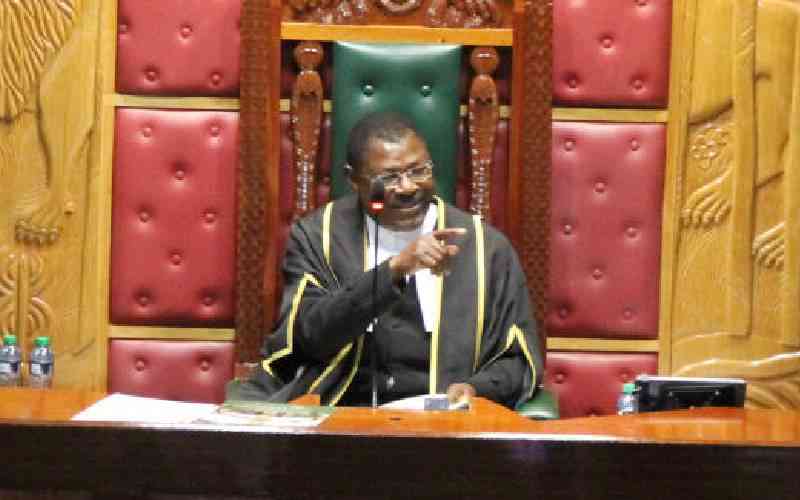Parliament has received a petition from a Kenyan Chief Executive Officer seeking to ban the popular social media application TikTok in Kenya.
The petitioner, Bridget Connect Consultancy CEO, Bob Ndolo, argues that the explicit content in TikTok promotes violence (sex), hate speech and vulgarity, which undermines Kenya's cultural and religious values.
Further, Ndolo argues that if TikTok is not banned, it poses threats of mental health issues to the youth and a decline in academic performance due to its addictive nature.
National Assembly Speaker Moses Wetangula on Tuesday stated that the petition decries that while it has gained popularity among the youths in Kenya, the content that is being shared on the platform is inappropriate, thus promoting violence, explicit sexual content, hate speech, vulgar language, and offensive behaviour which is a severe threat to the cultural and religious views of Kenya.
“The petitioner is also concerned that if the platform is not prohibited in Kenya, the Apps addictive nature will lead to a decline in academic performances and ascend in mental health issues such as depression, anxiety and sleep deprivation among the youth.”
Did you read this?
The petitioner predicated his case on the Communications Authority of Kenya's (CA) inability to control Tiktok and consequent inability to delete or restrict anything deemed offensive or unsuitable by users.
In addition, he mentions similar prohibitions of the application by other countries, such as the United States, due to its invasion of privacy when gathering personal data.
"TikTok has been implicated in several privacy scandals over the past years. For instance, in 2019, the app was fined $5.7 million by the USA Federal Trade Commission for illegally collecting personal information from children under the age of 13 by collecting data such as names, email addresses, and locations from young users without their parents consent thus violating Children's Online Privacy Protection Act," he stated.
Wetangula has now directed the National Assembly's Public Petitions Committee to consider the petition and report its findings.
“Having established that the matter raised in the petition is well within the Authority of these House, and further that matters raised in the petition are not pending before any court of law, Constitutional or legal body, I hereby commit the Public Petitions Committee for considerations pursuant to Standing Order 208 A,” Wetangula said.









